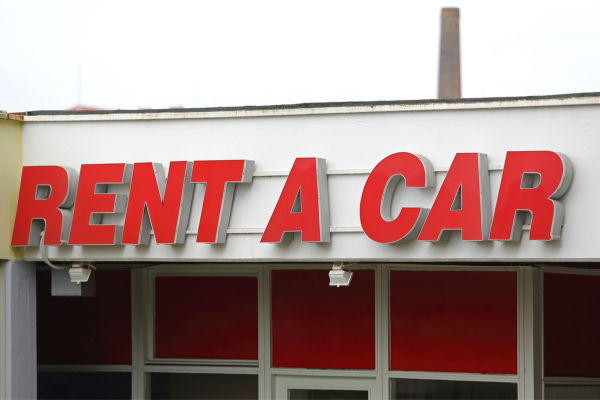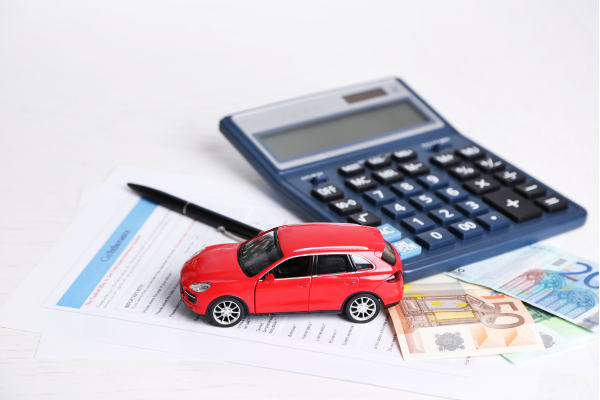Buying and Leasing a Car in Germany: A Guide for Expats

Navigating the car market in Germany can be challenging, especially for expats unfamiliar with the local processes. Whether you’re considering buying or leasing a car, it’s important to understand the advantages and disadvantages of each option, the steps involved, and the tax and environmental implications. This guide will help you make an informed decision based on your individual needs and circumstances.
Outline
Pros and Cons of Buying vs. Leasing a Car
Steps to Buying a Car in Germany
Understanding the Leasing Process
Tax Implications of Buying and Leasing
Environmental Considerations for Car Owners
Pros and Cons of Buying vs. Leasing a Car
Overview of Buying and Leasing Options
- Buying a Car: Involves purchasing a vehicle outright, either with cash or through financing. You own the vehicle, giving you the freedom to keep, modify, or sell it at any time.
- Leasing a Car: Involves making monthly payments to use a car over a set period, usually 2-4 years. At the end of the lease, you return the car or may have the option to purchase it.
Financial Implications of Each Choice
- Buying:
- Upfront Costs: Higher initial cost, especially if purchasing outright. Financing options are available, but they add interest.
- Long-Term Value: Ownership means the car is an asset, although it will depreciate over time.
- Leasing:
- Lower Upfront Costs: Typically involves a lower down payment and monthly payments than purchasing.
- Depreciation: Leasing avoids the risk of depreciation as the car is returned at the end of the lease.
Long-Term vs. Short-Term Considerations
- Long-Term: Buying is more cost-effective over the long term if you plan to keep the car for many years, as you’ll eventually pay off the loan and own the car outright.
- Short-Term: Leasing is advantageous for those who prefer driving newer cars every few years or for expats who may only stay in Germany temporarily.
How Your Decision Affects Insurance and Taxes
- Insurance: Leased cars typically require comprehensive insurance (Vollkasko), which is more expensive. Owned cars allow more flexibility in choosing insurance coverage.
- Taxes: Leasing payments can often be fully deducted as business expenses if you’re self-employed or a business owner, while depreciation of a purchased car can also offer tax advantages.
Who Should Consider Buying and Who Should Consider Leasing
- Buying: Ideal for long-term residents who want to build equity in their car.
- Leasing: Suited for those who prefer lower monthly payments and want to avoid the hassle of selling a car.
Steps to Buying a Car in Germany
How to Find and Choose the Right Car
- Research: Use platforms like mobile.de or autoscout24.de to compare car prices and models.
- Test Drive: Always test drive before buying, especially for used cars, to ensure it meets your needs.
Navigating the Used Car Market (Gebrauchtwagen)
- Certified Pre-Owned: Consider buying a certified pre-owned car from a dealership, which often includes warranties and has passed inspections.
- Inspection: If buying privately, get the car inspected by a trusted mechanic to avoid unexpected repairs.
Understanding Financing Options for Car Purchases
- Bank Loans: Most banks offer auto loans with different interest rates and terms. Compare offers to find the best deal.
- Dealership Financing: Some dealerships offer financing deals, sometimes with lower interest rates for certain models.
Environmental Regulations Affecting Car Choices
- Emission Standards: Ensure the car meets Germany’s strict emission standards, particularly if you plan to drive in cities with low-emission zones (Umweltzonen).
- Diesel Restrictions: Be cautious of buying older diesel vehicles, as they may be restricted in certain areas.
Registration Process and Obtaining License Plates
- Registration: Register your car at the local Kfz-Zulassungsstelle (vehicle registration office). You’ll need proof of insurance, your ID, and the car’s documents.
- License Plates: After registration, you’ll receive your license plates, which you can customize for an additional fee.
Understanding the Leasing Process
How Leasing Works in Germany
- Lease Terms: Typically lasts 2-4 years with fixed monthly payments. At the end of the lease, you can return the car, renew the lease, or purchase the car.
- Mileage Limits: Most leases include a mileage limit, with additional charges if you exceed it.
Key Terms and Conditions of Leasing Contracts
- Wear and Tear: Contracts outline acceptable wear and tear. Excessive damage can lead to additional charges.
- Early Termination: Terminating a lease early can be costly, so it’s important to understand the penalties.
Benefits of Leasing for Businesses and Self-Employed Individuals
- Tax Deductions: Lease payments are fully deductible as business expenses, which can reduce your taxable income.
- Cash Flow: Leasing requires less capital upfront, freeing up cash for other business needs.
End-of-Lease Considerations (Mileage, Wear and Tear)
- Inspection: The car will be inspected at the end of the lease. You may face charges if the car exceeds mileage limits or has excessive wear.
- Purchase Option: Some leases offer the option to purchase the car at the end of the lease for a predetermined price.
How to Negotiate Lease Agreements
- Down Payment: Negotiate the down payment to minimize your upfront costs.
- Mileage Allowance: If you expect to drive more than the standard mileage, negotiate for a higher limit to avoid extra fees.
- Inclusions: Ask about maintenance packages or services that can be included in the lease to reduce overall costs.
Tax Implications of Buying and Leasing
Overview of Tax Benefits for Leasing Through a Business
- Deductible Payments: Lease payments can be deducted as business expenses, which reduces taxable income.
- VAT Reclamation: Businesses can often reclaim VAT on lease payments.
How Car Ownership Affects Your Tax Return
- Depreciation: You can depreciate the car’s value over time, which can reduce your taxable income if you own the car.
- Operating Expenses: Maintenance, repairs, and insurance are deductible for business-owned vehicles.
Understanding VAT Implications for Car Purchases
- New Cars: VAT is charged at 19% on new cars. VAT-registered businesses can reclaim this on their tax return.
- Private Use: If a business vehicle is used privately, a portion of VAT may need to be repaid, depending on the level of personal use.
Deductible Expenses Related to Car Ownership and Leasing
- Fuel Costs: Deductible based on the proportion of business use.
- Insurance Premiums: Fully deductible for business vehicles.
- Maintenance: Regular maintenance and repairs are also deductible.
How to Report Car-Related Expenses on Your Tax Return
- Business Expenses: Report all car-related expenses as business deductions.
- Mileage Logs: Keep detailed logs to accurately report business vs. personal use.
Environmental Considerations for Car Owners
Understanding Germany’s Environmental Zones (Umweltzonen)
- Low Emission Zones: Many cities have low emission zones where only vehicles meeting certain emission standards are allowed. Failure to comply can result in fines.
- Emission Stickers: Most vehicles require a green sticker (Feinstaubplakette) to enter these zones.
How Emissions Standards Affect Vehicle Choices
- Diesel Restrictions: Be aware of restrictions on older diesel vehicles, as they may be banned from entering certain cities.
Requirements for Obtaining Environmental Stickers
- Feinstaubplakette: Available at registration offices and authorized dealerships. Ensure your car has the correct sticker if you plan to drive in low emission zones.
Impact of Future Environmental Regulations on Car Owners
- Stricter Emissions Standards: Future regulations may further limit the use of high-emission vehicles in cities.
- Potential Bans on Diesel Vehicles: Keep informed about potential bans on older diesel vehicles in urban areas.
How to Stay Informed About Changes in Environmental Laws
- Local Authorities: Regularly check updates from local authorities regarding changes in environmental regulations.
- Automotive News: Follow automotive news sources to stay informed about upcoming changes in regulations and how they may affect car ownership.
Buying or leasing a car in Germany is a significant decision that involves careful consideration of your financial situation, lifestyle, and long-term plans. By understanding the processes and implications of each option, you can make a choice that best suits your needs as an expat in Germany.
Disclaimer:
The information provided in this blog post is for general informational purposes only and does not constitute tax, legal, or financial advice. While we strive to ensure the accuracy and timeliness of the information, tax laws are complex and subject to change. We recommend consulting with a certified tax advisor for advice tailored to your individual circumstances. In terms of financial consultation, we collaborate with German Sherpa Financial Solutions, specializing in services for Expats in Germany. Please note that this content does not serve as tax consulting.
Public Transport in Germany: Deutschlandticket, Punctuality Issues, and Tips for Getting Around
Public Transport in Germany: Deutschlandticket, Punctuality Issues, and Tips for Getting Around Outline: Overview of…
Renting a Car in Germany: What You Need to Know
Renting a Car in Germany: What You Need to Know Renting a car in Germany…
Company Cars in Germany: Understanding the Perks and Tax Implications
Company Cars in Germany: Understanding the Perks and Tax Implications In Germany, company cars (Dienstwagen)…
Getting a German Driving License: Step-by-Step Checklist
Getting a German Driving License: Step-by-Step Checklist Obtaining a German driving license, especially if you’re…
Buying a Used Car in Germany: What You Need to Know
Buying a Used Car in Germany: What You Need to Know Buying a used car…
Car Insurance in Germany: Understanding Pricing and Options
Car Insurance in Germany: Understanding Pricing and Options Car insurance (Kfz-Versicherung) is mandatory in Germany,…






